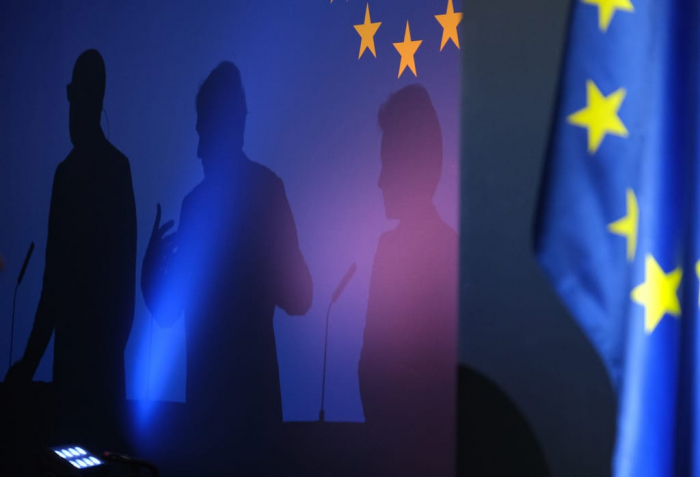The European Commission is considering allowing Euroclear to tap frozen Russian assets to help shield the G7’s €45 billion loan to Ukraine against potential retaliation by Moscow.
EU officials are weighing the move as a last-resort solution to compensate Euroclear, the Belgium-based depository holding these assets, for losses incurred in Russia due to its compliance with Western sanctions, according to three officials familiar with the matter who spoke to POLITICO.
Proponents argue the measure would fortify a multilateral scheme, finalized last week, that allocates windfall profits generated from around €200 billion in frozen Russian assets to repay the G7’s long-negotiated loan to Ukraine.
Euroclear is currently embroiled in litigation with multiple sanctioned parties who are using Russia’s highly politicized courts to contest their assets being withheld, and seeking compensation.
While Russian courts have little power to force the handover of euro or dollar-denominated assets held in Belgium to successful claimants, they do have the power to take retaliatory action against Euroclear balances held in Russian financial institutions. These belong mainly to Western financial institutions and businesses, who would then be eligible to raise their own compensatory claims against Euroclear.
Euroclear wrote in a recent filing that it faces “a significant number of legal proceedings ongoing, almost exclusively in Russian courts.”
To cover the costs or claims arising from these lawsuits, Euroclear has been reserving about 10 percent of the windfall profits generated from the frozen assets in a special rainy-day fund.
But officials argue it may be more cost-effective to tap a portion of the underlying Russian assets directly to cover these liabilities — even if critics say the act threatens compliance with international law.
Western institutions including the European Central Bank (ECB) have previously warned that transferring ownership of the Russian assets directly risks impairing confidence in the eurozone as a financial center and in the euro as an international reserve currency.
Euroclear’s Russian liability Euroclear, however, is under pressure to offset the growing black hole that is now appearing on its balance sheet and unnerving shareholders.
In response it is heaping pressure on the Commission to change its mind about the riskiness of direct seizure, according to the three officials, who were granted anonymity because the matters are sensitive.
While Commission officials are said to be open to these ideas, accommodating the request requires unanimous approval by the bloc’s 27 national capitals, meaning a concrete decision is unlikely to come soon.
The matter could, however, be formally considered in a broader review of EU sanctions policy that is currently being blocked by Hungary, according to one of the officials.
The original EU agreement — which opted to set aside 10 percent of the windfall profits to cover Euroclear's legal exposures, and which predates the creation of the G7 loan — stressed that if the risks do not materialize within five years, the unused funds should be handed over to the EU.
According to that agreement, the Belgian National Bank and the European Commission can also opt to withhold more if legal costs escalate. But exercising this option, critics note, would eat into the sums available to service the G7 loan.
Supporters of Euroclear’s proposal argue it would be better, if circumstances warrant it, to chip into Russian assets directly, since this would pose less of a burden on cashflows.
Moreover, officials believe that doing so would only affect a relatively small share of the approximately €192 billion in Russian assets that are held by Euroclear.
More about:
















































